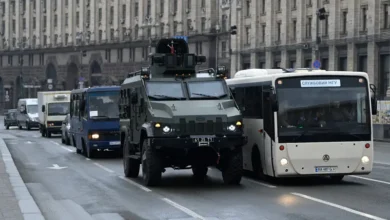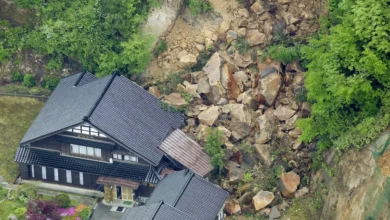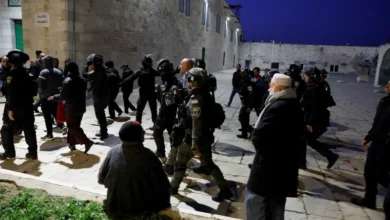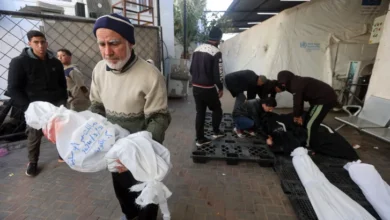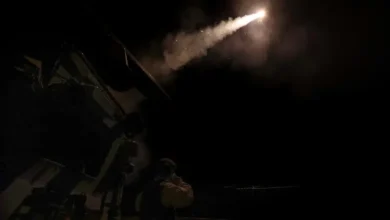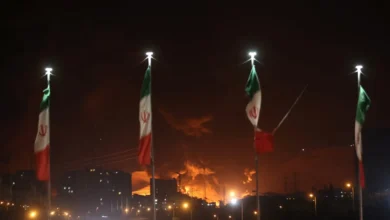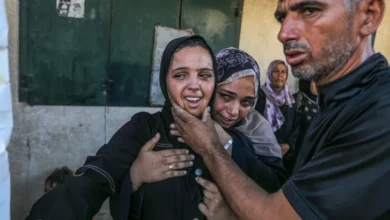Out of medicines, care: Gaza’s cancer patients face death amid Israel war
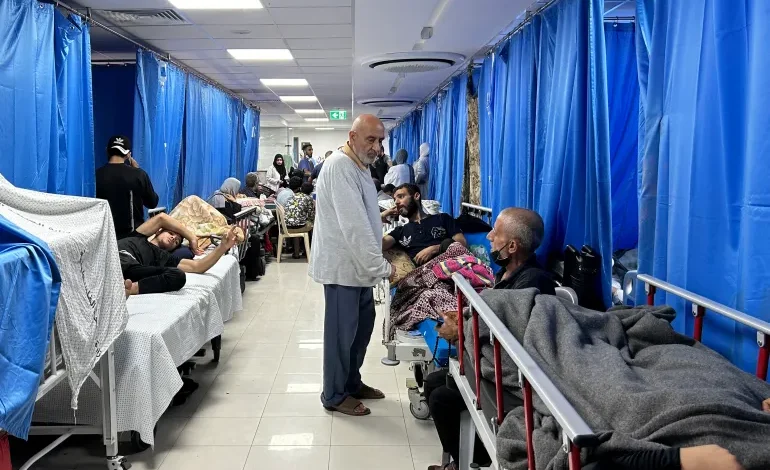
Sitting in her wheelchair, Saida Barbakh looks around at the crowded classroom in a United Nations-run school in Khan Younis that is her current home. She sighs deeply.
The 62-year-old bone cancer patient’s medication had run out several days earlier. She had been treated at Al Makassed Hospital in occupied East Jerusalem, and following a successful yet complicated surgery, she returned to the Gaza Strip on October 5, two days before the war began.
“I was supposed to go back after two weeks for a medical check-up,” she says. “I did not expect things to reach this level of danger.”
The UN-run schools, where 725,000 displaced Palestinians have taken shelter from unrelenting Israeli bombardment for more than a month, are far from ideal to house sick patients. A lack of electricity, clean running water, food and bedding, and inadequate washroom facilities, are turning the schools into Petri dishes for an outbreak of diseases, mainly respiratory infections, diarrhoea and skin rashes.
“I feel that I need care and sleep and I cannot move a lot in this wheelchair,” Barbakh said. “Living in this ugly and painful war with cancer is really awful.”
Barbakh, who is from the town of Bani Suhaila east of Khan Younis, was initially recovering at the Turkish-Palestinian Friendship Hospital, the only one for cancer treatment in the Gaza Strip.
But the hospital was forced to shut down its services on November 1, after running out of fuel due to Israel’s continuing blockade of the Gaza Strip. The building had also sustained heavy damage from repeated Israeli attacks on the surrounding areas, the Ministry of Health said. More than 11,000 Palestinians have been killed in Israel’s bombing of Gaza since October 7.
Barbakh was among 70 cancer patients evacuated from the hospital to go south, but after her house was damaged as a result of Israeli bombing – turning much of the area into a ghost town – she and her family had no choice but to stay at a shelter school.
Only clinical care available
The Palestinian Authority health minister, Mai al-Kaila, warns that the lives of these 70 cancer patients are under serious threat because of the lack of treatment and health follow-ups.
Overall, the 2,000 cancer patients in the Gaza Strip are living in “catastrophic health conditions as a result of the ongoing Israeli aggression on the Strip and the mass displacement”, al-Kaila said.
Subhi Sukeyk, the director of the Turkish-Palestinian Friendship Hospital, said more than a month after the start of the war, medicines have run out.
Dar Essalam Hospital cannot offer medicines or cancer treatment, but it does provide patients with basic clinical care, he said.
But some of the cancer patients have asked to join their families in the shelter schools to die among them because they know that the hospitals cannot provide them with treatment, he added.
“Every day, we lose two or three cancer patients,” Sukeyk said. “On the night the patients were transferred from the Turkish Friendship Hospital,” he says, “four of them died. The previous night six patients died.”
At the Turkish Friendship Hospital, only a few patients remain. Among them is Salem Khreis, a 40-year-old leukaemia patient.
“There’s no medicine or treatment,” he said. “I can’t explain how terrible the pain is.”
Khreis said he appreciates that the doctors are always by the side of their patients, but beyond their reassurances, there is nothing else they can do.


